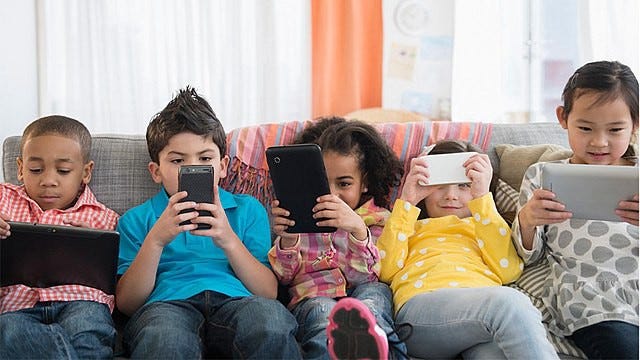“‘Remember, the firemen are rarely necessary. The public itself stopped reading of its own accord.’” So says the ex-English professor in “Fahrenheit 451,” Ray Bradbury’s 1953 novel about life under a book-burning regime. The book is still frequently assigned in US high schools — the sad irony is that many kids still won’t read it.
While challenges to school and library books are a perennial issue tracked by the American Library Association, we’re seeing, as part of a broader political attack on education, a surge in efforts to remove books from schools, particularly those related to race or gender. There are even calls to torch them as the government does in Bradbury’s dystopia. A Virginia school board member demanded recently to “see the books before we burn them so we can identify within our community that we are eradicating this bad stuff.”
This right-wing propaganda and Republican-led legislative push has some parents convinced that the most urgent problem in education today is what their children are reading.
The problem, though, isn’t what America’s children are reading. It’s that they aren’t reading.
This shouldn’t be a surprise as data shows children spend ever more time on screens. Pre-pandemic, teenagers were at it about seven and a half hours each day, excluding for schoolwork. Only a speck of this is spent reading periodicals or books, meaning they essentially have full-time jobs scrolling entertainment. Add school, sports and other extracurriculars, caring for siblings, or actual jobs, and there might be time left for most high schoolers to read the back of a cereal box.
Meanwhile, the hunt for “pornographic” books in schools led by politicians such as Texas Governor Greg Abbott is especially misguided when children’s exposure to online porn is terrifically common. And this isn’t all they get online. Adults worried about the psychological effects of books might peruse the list of mental health issues the American Academy of Child and Adolescent Psychiatry notes come from being too online. And those who fear books are brainwashing might look at how youth are being radicalized online.
But screens aren’t the only reason America’s children don’t read. They’re growing up in a book-eschewing culture. On average, adults read mere minutes a day. One in four don’t read even part of a book a year. Still, whether or not they read themselves, parents might be surprised at how little their children do, given that they are asked to for school. When a parent would inquire how their student could improve their grade in my English class, I would ask, do you see them with the book we are studying? The answer was often an embarrassed no.
Students are also growing up in a culture of anti-intellectualism that can only be worsened by this wave of curriculum hysteria. Through book burner Beatty, Bradbury predicted that “the word `intellectual,’ of course, became the swear word it deserved to be. You always dread the unfamiliar. Surely you remember the boy in your own school class who was exceptionally ‘bright,’ did most of the reciting and answering while the others sat like so many leaden idols, hating him. And wasn’t it [him] you selected for beatings…?”
And today? “You have no idea,” said English teacher and educational consultant Jason Ablin, “Boys in particular brag about never having finished a book.” Avoiding reading has become a sport in districts like the ones I worked in where parents are laser-focused on their children attending selective colleges. These communities’ hard-driving cultures can encourage system-beating, box-checking, and cheating, best captured by Denise Clark Pope in her 2003 book, “Doing School.” Seeing their classmates who don’t do the reading achieve high grades by cramming with online “study guides” has helped spread a contagion of book avoidance as those guides make it difficult for teachers to ensure their students read.
Of deeper concern are the many children who don’t read because they struggle to do so. Only about a third of American fourth and eighth graders are rated proficient on national standardized reading tests, not much different than they did three decades ago despite a sweeping “accountability” and testing regime launched with the Bush Administration’s No Child Left Behind and accentuated by Obama’s Race to the Top. Now comes the pandemic and its disruption to learning. How to get and keep students reading during good times and bad should be the central debate.
Yes, educators still argue about the best ways to teach reading and politicians still argue about the best ways to raise scores, but these are arguments worth having. Maybe we’re bored with those conversations. They’re not as provocative as scandals about sex scenes in books or as energizing as fights framed as battles over children’s souls. And as we’ve proven, it’s incredibly hard work that requires systems thinking and the involvement of all. The attention of parents, educators, and elected officials should be on how to get America’s children sitting down with books.






